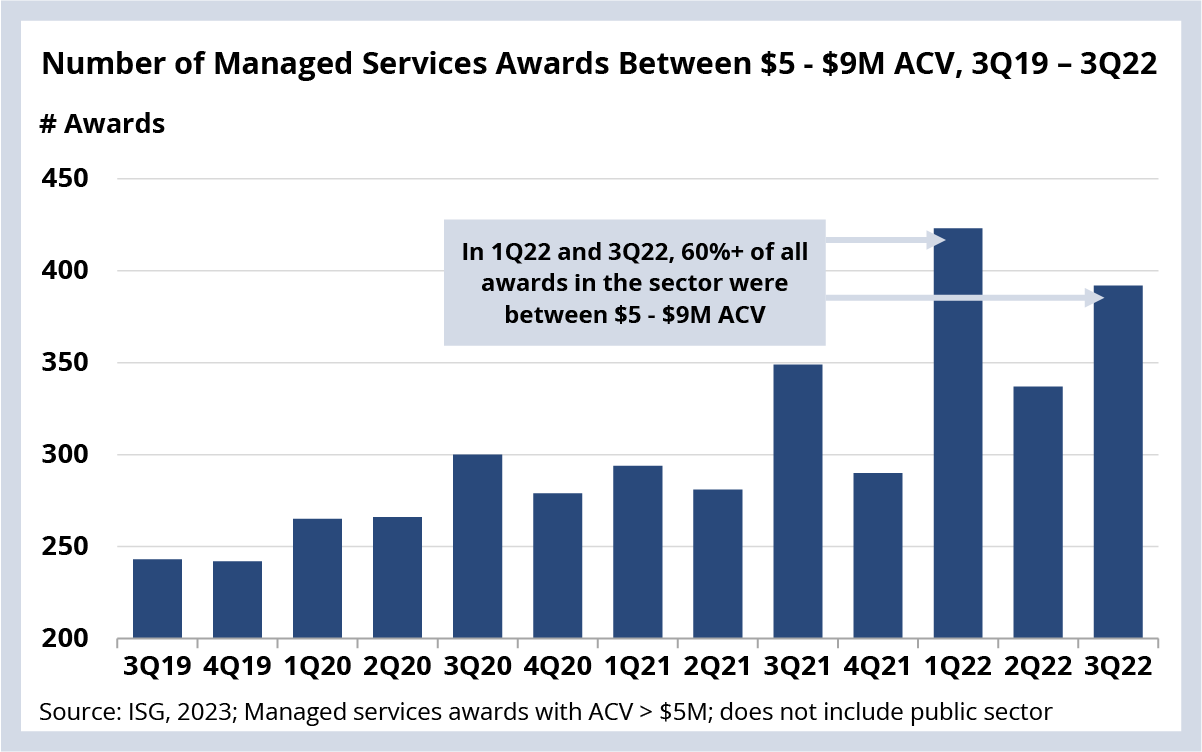Reminder that the 4Q22 Index Call is next Thursday, Jan. 12 at 9:00 AM Eastern. Register here.
If someone forwarded you this briefing, sign up here to get the Index Insider every Friday.
DEMAND
The volume – and overall share – of smaller managed services awards continues to grow. This is partly due to near-term macro concerns and partly due to longer-term changes in the way large enterprises are funding technology investments.
Background:
Covid forced enterprises and their workforces to transform in weeks rather than years. New variants, inflation, nagging supply chain issues, an evolving hybrid work environment and, of course, an exceptionally tight labor market are creating wave after wave of change.
These waves of change are requiring firms to continually transform and strategically reprioritize tech investments. And this is one of the big reasons we’re seeing unprecedented levels of demand for IT services – and unprecedented levels of demand for services that produce results in the short term.
The Details:
- There were over 1,100 managed services awards between $5 – $9 million ACV through 3Q22; this is a 25% increase compared to the same period in 2021.
- In 1Q22 and 3Q22, awards between $5 – $9 million made up 60% or more of all the awards in the sector.
What’s Coming:
In 2023, transformation programs will be under even greater pressure to drive business value. Gone are the days of heavy upfront investments that create months or years-long lags between funding and outcomes.
It’s our view that we’re going to see increased funding for tech investments in venture-capital-like style: small tranches of funding based on delivered value that ensure outcomes and value are delivered frequently and at pace – with an opportunity to kill initiatives that are not performing. We believe that enterprises will increasingly apply this approach to the technology services sector as well.
As a result, transformation will increasingly get embedded within “run and operate” service delivery models.
This change has been underway for some time. As a result, smaller, shorter new-scope-type awards are here to stay.
DATA WATCH

